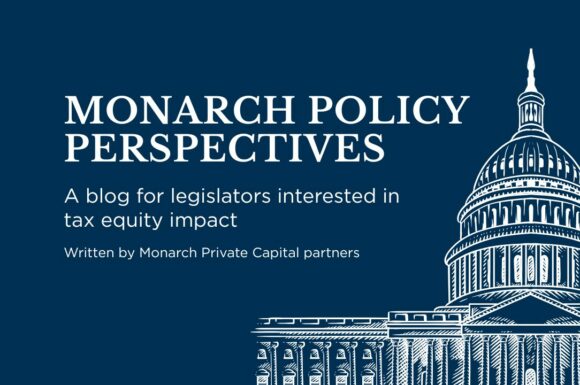NCSEA Census: North Carolina’s Clean Energy Economy Continues Adding Jobs as Industry Sectors Expand
Energy Efficiency, Solar Shine through Policy Changes as $6.4B Clean Energy Industry’s Jobs Grow 31% over 2015
North Carolina’s diverse clean energy industry now boasts almost 1,000 firms, more than 34,000 full-time equivalent jobs, and $6.4 billion in annual revenues, according to the 2016 NC Clean Energy Industry Census, released today by the NC Sustainable Energy Association (NCSEA), a leading 501(c)3 nonprofit organization dedicated to shaping the state’s clean and efficient energy future. Energy efficiency led the industry in both employment and revenues, accounting for nearly half of all clean energy jobs and generating over $2.5 billion in 2016, according to NCSEA’s signature annual publication.
NCSEA created the Industry Census in 2008, a first of its kind nationally, to help measure the impact of North Carolina’s clean energy policies and identify where policy is and is not achieving the results that policymakers, economic developers and industry members envisioned. “In a regulated electricity market like ours, driving down the cost of clean energy can only happen if allowed by policy,” said NCSEA’s executive director, Ivan Urlaub.
“In the ten years since North Carolina’s last comprehensive update of state electricity laws to include clean energy resources, the clean energy industry has been one of the few sectors to achieve double digit job growth throughout the recession and each year since, while steadily reducing costs and slowing the rise in the rates charged by our state’s electric utilities.”
Evolution of North Carolina’s Clean Energy Economy
North Carolina’s clean energy economy today includes at least ten sectors and conducts at least nine business activities in a state that is uniquely suited for the manufacturing and deployment of innovative clean energy technologies, from solar and wind energy to biomass such as animal waste-to-energy projects, energy storage, energy efficiency and smart grid. The Census has tracked the economic progress of the industry by measuring sector growth and related business activity since 2008, the year after North Carolina’s landmark Renewable Energy and Energy Efficiency Portfolio Standard (REPS) policy was passed as part of Senate Bill 3.
Remarkably, the clean energy industry saw continued gains across its many sectors and business activities in 2016, despite policy uncertainty and changes occurring at both state and federal levels during the census survey period. This stability is supported in part by the availability of foundational policies like the state’s REPS and federal Renewable Energy Investment Tax Credit (ITC), which continue to help clean energy technologies enter and compete in North Carolina’s monopoly-controlled electricity market.
“The ninth edition of the Census demonstrates the continued growth of the clean energy industry in the state despite policy changes and market uncertainty,” said NCSEA’s manager of energy research and census author, Robin Aldina. “While some sectors fared better than others over the past year, overall industry resilience bodes well for the continued creation of new jobs and revenue for North Carolinians as we transition to a new energy future.”
North Carolina’s Energy Efficiency
North Carolina added over 8,000 full-time equivalent (FTE) jobs in 2016, growing the universe of clean energy employment to an estimated 34,294 FTE – a 31% increase over last year. Energy efficiency held strong as the industry’s top job creator, accounting for nearly one-half, a reported 47%, of all employment in the industry with 16,107 FTE jobs, most of them coming from the sale of building system components. This is a change from last year, when most energy efficiency jobs came from the design and construction of new buildings.
Energy efficiency, particularly where associated with building efficiency, also accounted for an impressive 40% of clean energy revenues in 2016, with $2.5 billion in revenues – primarily from the design and construction of new buildings – reported by survey respondents. For the second year in a row, solar accounted for the second-highest earnings, with $1.4 billion in revenue reported.
North Carolina Benefits from Clean Energy
North Carolinians are benefiting from clean energy in the form of lower electric bills, healthier communities and expanded local tax bases, as job opportunities continue surfacing across the industry’s diverse supply chain. The state, which has gained recognition in the region and nation for its clean energy leadership over the past decade, is poised for continued growth in not only renowned sectors like solar and energy efficiency, but also emerging technologies like energy storage, geothermal and fuel cells. Two of the latter sectors both saw a marked increase in revenues in 2016: an impressive $275 million for geothermal and $92 million for fuel cells, according to the report.
Also following a trend observed in 2015: diversity of the industry is expanding on pace with its economic growth. This year saw some emerging sectors add jobs and increase their market share on the clean energy spectrum: The lesser-known biomass/biofuels sector experienced a significant increase in employment, reaching 5,619 FTE in 2016 after reporting 1,245 the year prior. In addition, the smart grid and geothermal sectors supplied more jobs in the state than in 2015, accounting for 1,815 and 1,042 FTE, respectively.
All of North Carolina stands to benefit from clean energy products and services, with clean energy firms located in 78 of the state’s 100 counties. Further, 45% of all goods and services produced by the industry stay in the county of their origin, according to the report. However, those firms reporting manufacturing/production and research & development activity are instrumental in bringing in revenue from outside of the state, with 53% and 38% of their exports going to broader markets, respectively.
“Like any technology in our economy, prices come down when we learn through technology use and market growth,” said Urlaub. “If state policy continues to enable cost reductions in our clean energy resources, North Carolina will increase our affordable energy options while growing jobs and maintaining competitive electricity rates and bills.”
About the Clean Energy Industry Census
Since 2008, the NC Sustainable Energy Association (NCSEA) has surveyed companies, institutions, and organizations in the clean energy industry in order to quantify their impact on the state’s economy. The 2016 North Carolina Clean Energy Industry Census represents the ninth edition of this survey and resulting report. NCSEA created the Census to help measure the impact of North Carolina’s clean energy policies and identify where policies are or are not achieving the results policymakers, economic developers, and industry envisioned.
About the NC Sustainable Energy Association
The NC Sustainable Energy Association (NCSEA) is a recognized 501(c)3 nonprofit, nonpartisan advocacy organization dedicated to shaping North Carolina’s clean energy future through commonsense policy solutions that enable clean energy jobs, business opportunities and affordable energy to strengthen the state’s position as a leader in the new energy economy.
Engaging its deep ties with members, government officials, North Carolina communities and industry partners, NCSEA leads policy change that motivate sustainable market development while educating North Carolinians about the impacts of abundant and accessible clean energy.
NCSEA has served as a respected, trusted and collaborative resource to North Carolina and beyond driving some of the most successful policies across all energy sectors since 1978. NCSEA is also a member of the American Solar Energy Society and the Advanced Energy Economy.
For regular updates, please visit NCESA online at energync.org.
Related Posts

Misinformation Rampant About Cause of Spanish GRID Blackout: Cause is Now Known
May 26, 2025
By George L. Strobel II In the wake of last month’s massive blackout that disrupted power across Spain, Portugal, and parts of southern France for more than twelve hours, speculation […]

TIME: The Clean Energy Tax Debate Will Shape America’s Economic Future
May 16, 2025
by Justin Worland As Republicans look to broker a sweeping budget deal, top GOP leadership in the House of Representatives unveiled a series of cuts this week to the provisions […]

HR 1 Undermines U.S. National Security and Traditional Republican Energy Policy
May 27, 2025
By George L. Strobel II In an age defined by technological competition, particularly in artificial intelligence (AI), the United States cannot afford to neglect the foundational pillars of national power: […]